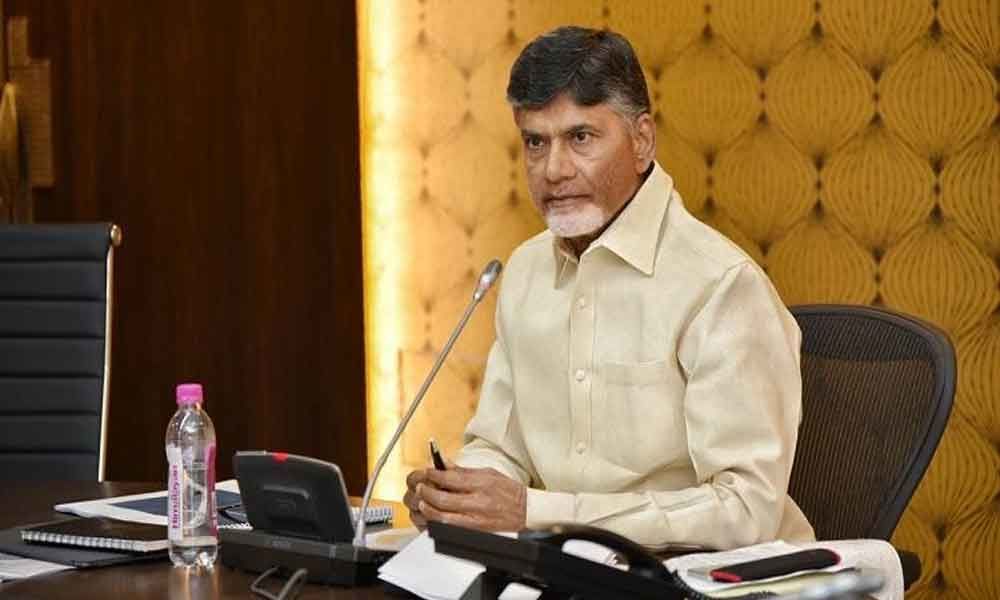On June 8, 2023, Nara Chandrababu Naidu, the former Chief Minister of Andhra Pradesh and leader of the Telugu Desam Party (TDP), made a significant announcement regarding the state’s capital city. Naidu declared Amaravati as the sole capital of Andhra Pradesh, a decision that marked a pivotal moment in the state’s ongoing political and developmental discourse. This proclamation was not merely a political maneuver but also a reaffirmation of a vision he had championed during his previous tenure as Chief Minister from 2014 to 2019.
Amaravati’s journey to becoming the focal point of Andhra Pradesh’s governance and development has been fraught with controversy and challenges. When the state was bifurcated in 2014 to create Telangana, Hyderabad was designated as the joint capital for a period of ten years. However, Andhra Pradesh needed a new capital to house its administrative functions post this transitional period. It was during this time that Naidu, as the Chief Minister, proposed the establishment of Amaravati as the state’s capital. Located along the banks of the Krishna River, Amaravati was envisioned as a world-class city, a hub of culture, technology, and governance, intended to rival the best cities globally.
Naidu’s announcement in 2023 was a reiteration of his commitment to this vision, which had faced significant setbacks during the tenure of his successor, Y.S. Jagan Mohan Reddy. Reddy, the leader of the Yuvajana Sramika Rythu Congress Party (YSRCP), proposed a decentralized model of development, designating three capitals for Andhra Pradesh: Amaravati as the legislative capital, Visakhapatnam as the executive capital, and Kurnool as the judicial capital. This tri-capital plan, aimed at equitable development across different regions, sparked intense debates and legal battles, polarizing public opinion.
Naidu’s declaration to restore Amaravati as the sole capital is laden with implications. He emphasized the strategic, economic, and cultural advantages of concentrating resources and administrative functions in one city. According to Naidu, Amaravati’s location offers a geographically central position, making it accessible from various parts of the state. Furthermore, the region around Amaravati has fertile lands, which can support a burgeoning urban economy while preserving agricultural traditions.
The former Chief Minister’s announcement also reflects a broader political strategy. By championing Amaravati, Naidu is not only aiming to reclaim his legacy but also to galvanize support among the farmers and landowners who had given up their lands for the capital’s development. During his previous tenure, Naidu had launched an extensive land pooling scheme, where thousands of farmers contributed land with the promise of lucrative returns once Amaravati developed into a bustling urban center. The delay and perceived abandonment of this plan under the YSRCP government had led to significant discontent among these stakeholders.
Naidu’s vision for Amaravati includes state-of-the-art infrastructure, world-class educational institutions, healthcare facilities, and a thriving IT sector. He envisions a city that is not just a seat of power but a symbol of progress and modernity, attracting investments and creating employment opportunities. This vision is rooted in his broader developmental philosophy, which has always emphasized infrastructure-led growth and public-private partnerships.
However, this announcement also raises several challenges and questions. The legal battles regarding the tri-capital plan are still unresolved, and the YSRCP government has firmly opposed reverting to a single capital model. Implementing Naidu’s vision would require overcoming significant bureaucratic, financial, and political hurdles. There are concerns about the financial viability of developing Amaravati into a world-class city, given the state’s existing debt and fiscal constraints.
Moreover, the tri-capital plan, despite its controversies, had its proponents who argued that it would lead to more balanced regional development and reduce the concentration of resources and opportunities in one area. This debate touches upon deeper issues of regional equity and historical grievances, particularly in the Rayalaseema and North Coastal Andhra regions, which have felt marginalized in the state’s development narrative.
The socio-political landscape of Andhra Pradesh is complex, with regional identities and aspirations playing a crucial role in shaping public opinion and political strategies. Naidu’s announcement, therefore, is not just about urban planning but also about addressing these regional dynamics. It reflects a political gamble to consolidate support among certain constituencies while challenging the current administration’s policies.
In terms of public opinion, the response to Naidu’s announcement has been mixed. Supporters hail it as a bold and necessary step to restore Andhra Pradesh’s growth trajectory and fulfill the promises made to the people of Amaravati. They argue that a single capital model can ensure focused investment and rapid development, creating a showcase city that can attract global attention and investment.
Critics, however, caution against the risks of reversing established policies and the potential for increased regional tensions. They point out that the tri-capital plan, despite its implementation challenges, aimed to address historical imbalances and promote inclusive development. They argue that Naidu’s vision, while ambitious, may not sufficiently address the needs and aspirations of the entire state.
The international dimension of this announcement also cannot be ignored. During his previous tenure, Naidu had forged several international partnerships to attract investments and expertise for Amaravati’s development. The city was envisioned with input from renowned architects and planners globally, and it was pitched as an investment destination with significant potential. Restoring this vision involves rekindling these international collaborations and convincing investors of the renewed commitment to Amaravati.
The announcement also has implications for the upcoming state elections. By positioning Amaravati at the center of his political campaign, Naidu is seeking to create a clear contrast with the YSRCP’s governance model. This move aims to rally his base and attract undecided voters who are dissatisfied with the current administration’s handling of the capital issue. The success of this strategy, however, will depend on Naidu’s ability to effectively communicate his vision and address the legitimate concerns of those who feel left out of the single capital model.
In conclusion, Chandrababu Naidu’s announcement of Amaravati as the sole capital of Andhra Pradesh is a significant and multifaceted development. It is a reaffirmation of a vision he has long championed, one that aims to create a modern, vibrant urban center at the heart of Andhra Pradesh. This decision, however, is laden with political, economic, and social implications, reflecting the complex realities of state politics and regional aspirations. As Andhra Pradesh moves forward, the debates surrounding its capital will continue to shape its developmental trajectory and political landscape. Whether Amaravati can fulfill its promise as a world-class city remains to be seen, but Naidu’s declaration has undoubtedly reignited a crucial conversation about the future of Andhra Pradesh and its governance.










